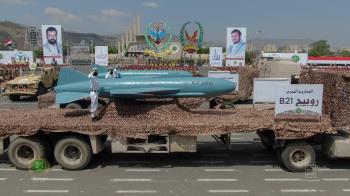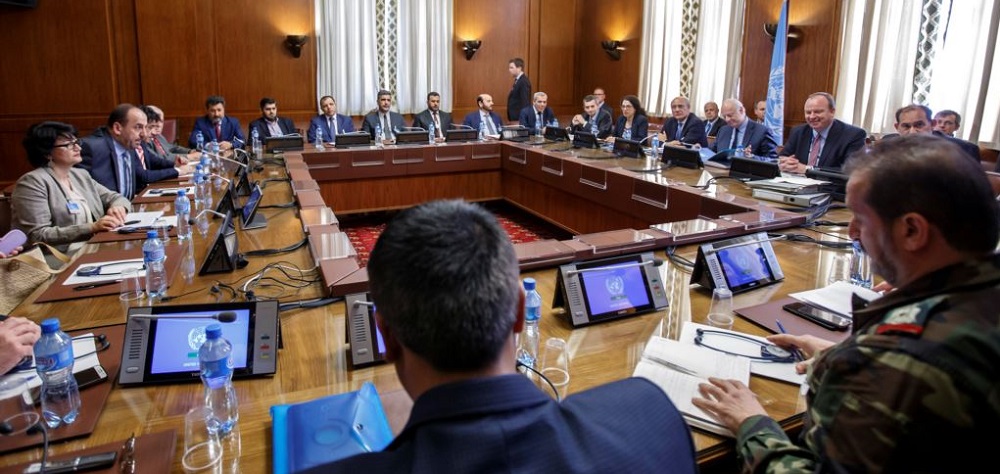Alwaght- The peace talks to reach a solution to the Syrian crisis restarted in Geneva on May16, hosted by the UN and mainly sponsored by Russia is scheduled to last until Friday.
The UN has released a statement, saying that this round of negotiations is focusing on four separate “baskets”: the government, new constitution, elections, and combating terrorism.
The fresh round of Geneva talks between the Syrian government and its opponents is significant as it follows the fourth round of Astana peace talks that came out with a ceasefire deal after Russia, Turkey, and Iran agreed on setting up “de-escalation zones.”
The agreement appears to be successful in addressing the announced goals, with the violence reducing to a considerable level in the agreed-upon points of conflict.
Moscow and Tehran expressed hope that Astana initiative will provide a background for the success of the Geneva peace process. But the disruptive US measures in terms of diplomacy and also on the battlefields have minimized the possibility of the ongoing efforts for peace to come to fruition.
The American steps to foil Geneva talks were taken even before the fresh round of dialogue that started three days ago. The US administration recently claimed that the Syrian government systematically executed the prisoners and burned their bodies in the so-called crematorium just outside the capital Damascus.
The charges by the US, the analysts suggest, are coming to put under pressure Russia, Syria’s key ally, in the war against the terrorists in a bid to push Moscow for withdrawal of its support for the government of the Syrian President Bashar al-Assad.
The new American claims were strongly denied by the Syrian officials, however, the reports coming out of the meeting have said that the Geneva peace dialogue was apparently overshadowed by the US allegations of mass execution, causing a tense atmosphere among the delegations from the warring sides.
The Americans did not stop short of these anti-Damascus allegations. They announced imposing a series of new sanctions on the Syrian government. The US Treasury Department announced on Tuesday that the fresh sanctions targeted an array of Syrian institutions and political figures.
In addition to the repellent US moves on the political stage, its measures on the Syrian front lines, particularly in northeast and southeast, have left a clear impact on the new peace negotiations.
Under the cover of battling the ISIS terrorist group in north of the war-ravaged country, the US stepped up military presence on the Syrian territories. The American struggle in north concentrates on helping a coalition of Kurdish forces to retake Raqqa, the ISIS Syria stronghold. The Syrian Democratic Forces (SDF) have received a large amount of weapons from Washington in defiance of the frequent Turkey warnings.
Strengthening the allied militants on the battleground, simultaneously the US along with Britain and Jordan, amassed a large number of ready-for-combat troops along the Syria-Jordan borders. The American forces are seeking expansion of their areas of influence to separate Syria and Iraq and thus cut the road access of Baghdad to Damascus.
The American moves both militarily and diplomatically so far have shown that Washington is not interested in finding a settlement for Syria’s now-six-years-long war.
On the opposition side, the sources Geneva sixth developments have said that the opponents of President Assad kept insisting on preconditions that for the past six years have been the main sticking point of the peace process. Echoing the West’s anti-Assad viewpoints, the opposition delegation asserted that the president should not have any role in the country’s future. But Damascus and its allies stress on the idea that it is the Syrian people who should be allowed to have the last word on the fate of the President Assad.
The lessons learned from the earlier negotiations caused the Syrian leaders to lower expectations and look at the new Geneva talks round with pessimism. A week before the talks, President Assad told the media that “nothing substantial” will come out of the Geneva meeting, and that the opposition attend the talks to arrange a “media show.”



























